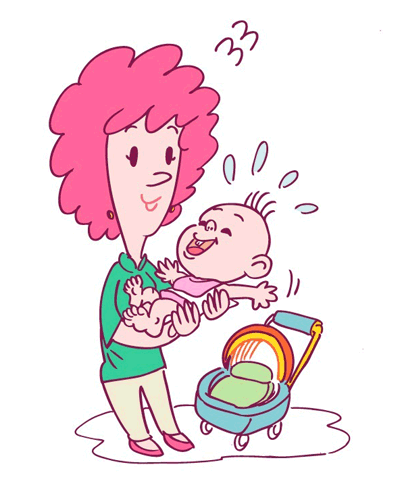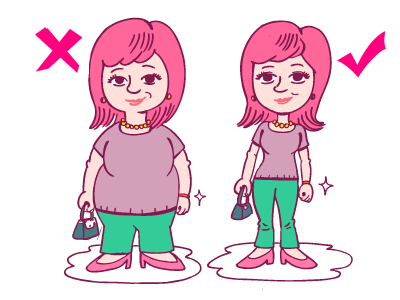Breast cancer and female hormones
Studies have shown that a woman’s risk of developing breast cancer is related to her exposure to the oestrogen hormone. Factors that increase the duration and/or levels of exposure to this hormone (which stimulates cell growth) have been associated with an increased risk of breast cancer.
The production of the oestrogen hormone is related to menstruation cycle, time of menopause, age of first pregnancy and breastfeeding history. By looking at these factors, we may come up with some preventative ideas that could reduce the risk of breast cancer.
Reducing breast cancer risk
 Reproductive history
Reproductive history
Women who have given birth are less likely to develop breast cancer because they have a lower cumulative exposure to endogenous hormones than those who have never given birth. And, if a woman gives birth to her first child before the age of 20, her risk of breast cancer is 50% lower than a woman who gives birth to her first child after 30.
Breastfeeding history
Breastfeeding helps protect against breast cancer because it reduces a woman’s oestrogen levels, and thus her cumulative exposure to endogenous hormones. The longer a woman breastfeeds her children, the lower her risk of having breast cancer.
Exercise
Women who don’t exercise regularly have a higher risk of breast cancer. Research by the National Institute of Health shows that 1.25 to 2.5 hours spent walking each week can help reduce the risk of breast cancer by 18%.
Diet
Adopting a healthy, balanced diet is key to good health. Consume foods that are high in fibre and limit your intake of red meat, processed, preserved or smoked food. Avoiding food that has a high sugar or fat content or is high in sodium can also help reduce the risk of breast cancer.
Risk factors
The exact cause of breast cancer is unknown. However, factors that are known to increase breast cancer risk include:
Menstruation
A high total number of menstrual cycles increase a woman’s cumulative exposure to endogenous hormones in her lifetime. Women who start their period very young (before 12) or stop later than usual (after the age of 55) are more likely to develop breast cancer.
Age
More than half of women diagnosed with cancer are over 50 years of age. There is, however, an increasing trend of women being diagnosed at an earlier age, particularly during their late 30s or early 40s. This means that all women should be breast aware.
Family medical history
Having a close relative (a mother, sister or daughter) who has been diagnosed with breast cancer can increase your own risk. A small number of women have an especially high risk of breast cancer because of faulty genes they've inherited. Faults in known high-risk breast cancer genes include BRCA1 and BRCA2.
Individual medial history
Individuals with high-risk breast cancer genes like BRCA1 and BRAC2, or with a past history of benign breast issues (such as atypical hyperplasia), non-invasive breast cancer, ovarian cancer, or endometrial cancer, are more likely to be at risk of breast cancer.
Medicine
Those taking hormone replacement therapy (HRT), combined oral contraceptive pills, and hormone replacement therapy for the menopause could have a higher risk of breast cancer.
Alcohol
Regular consumption of large quantities of alcohol can slightly increase the risk of breast cancer.
 Overweight
Overweight
Being overweight, especially after menopause, increases the risk of breast cancer. Menstruation in females is regulated by oestrogen and progesterone. However, after menopause, the ovaries will stop producing oestrogen and progesterone, while oestrogen will still be produced by fat. If fat accumulates in the body, the excessive level of oestrogen produced might increase the risk of breast cancer.
Radiation
Long-term exposure to radiation, or moderate to high levels of radiation exposure, increases the risk of breast cancer.
Please note that these risk factors will not always directly result in breast cancer and the risk factors for the majority of women remain unknown.


